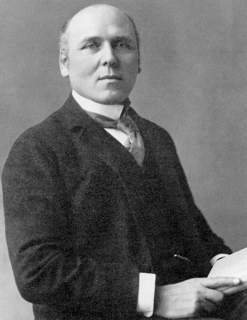A Quote by John Donne
Dull sublunary lovers' love (Whose soul is sense) cannot admit Absence, because it doth remove Those things which elemented it.
Related Quotes
The soul has two parts, one rational and the other irrational. Let us now similarly divide the rational part, and let it be assumed that there are two rational faculties, one whereby we contemplate those things whose first principles are invariable, and one whereby we contemplate those things which admit of variation.
... God cometh sometimes unto the soul when it hath neither called, nor prayed unto, nor summoned Him. And He doth instil into the soul a fire and a love and a sweetness not customary, wherein it doth greatly delight and rejoice ... Thus doth the soul feel that God is mingled with it and hath made companionship with it.
Man doth seek a triple perfection: first a sensual, consisting in those things which very life itself requireth either as necessary supplements, or as beauties and ornaments thereof; then an intellectual, consisting in those things which none underneath man is either capable of or acquainted with; lastly a spiritual and divine, consisting in those things whereunto we tend by supernatural means here, but cannot here attain unto them.
In heaven there is laid up a pattern which he who chooses may behold, and beholding, set his own house in order. The time has now arrived at which they must raise the eye of the soul to the Universal Light which lightens all things. With the eye ever directed toward things fixed and immutable which neither injure nor are injured - these they cannot help imitating. But I quite admit the difficulty of believing that in every man there is an eye of the soul which by the right direction is re-illumined, and is more precious far than ten thousand bodily eyes.
He that comes to Christ cannot, it is true, always get on as fast as he would. Poor coming soul, thou art like the man that would ride full gallop whose horse will hardly trot. Now the desire of his mind is not to be judged of by the slow pace of the dull jade he rides on, but by the hitching and kicking and spurring as he sits on his back. Thy flesh is like this dull jade, it will not gallop after Christ, it will be backward though thy soul and heaven lie at stake.
To be godless is probably the first step to innocence," he said, "to lose the sense of sin and subordination, the false grief for things supposed to be lost." So by innocence you mean not an absence of experience, but an absence of illusions." An absence of need for illusions," he said. "A love of and respect for what is right before your eyes.





































